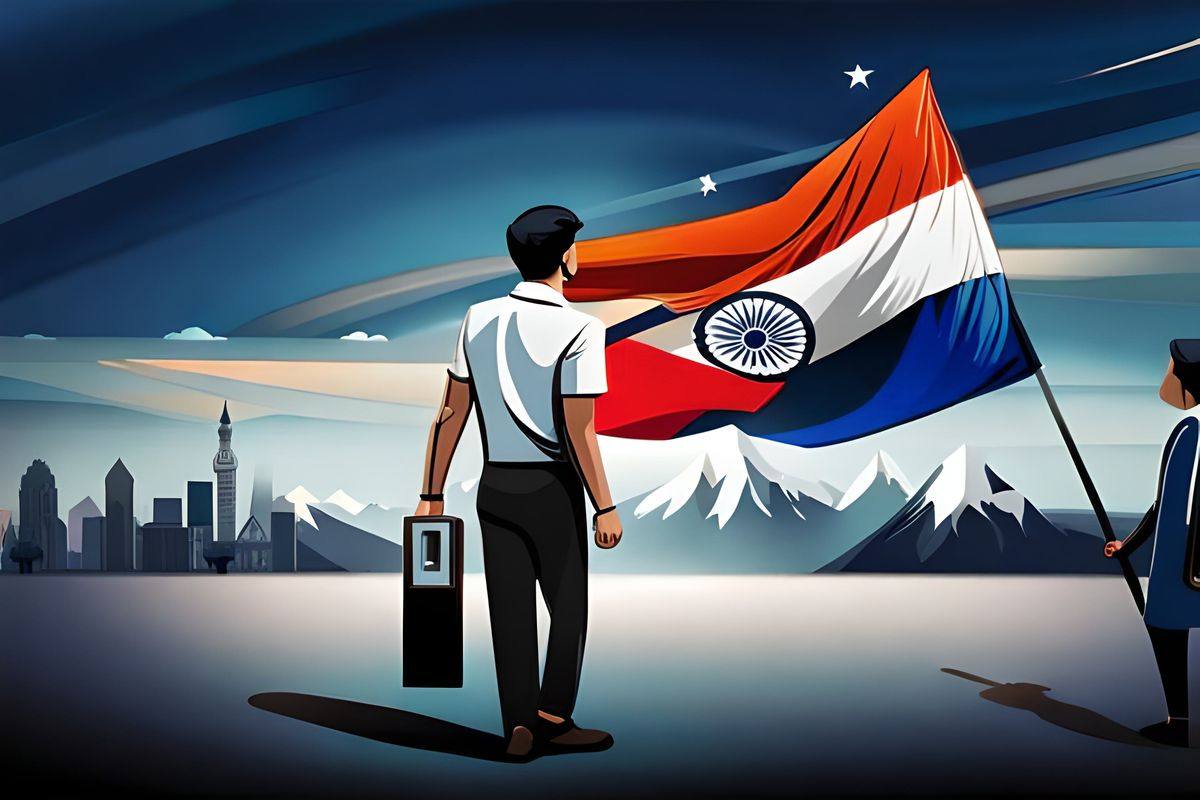According to various sources, the central government is considering the introduction of the ‘One Nation, One Election’ bill in Parliament. Let us take a look at the advantages and disadvantages of conducting simultaneous elections.
The government led by PM Modi, might introduce the ‘One Nation, One Election’ bill during the special session of Parliament which was abruptly called by Union Minister of Parliamentary Affairs Pralhad Joshi from September 18 to 22, sources said on Thursday.
“One Nation, One Election” is a concept that has gained significant attention in Indian political discourse in recent years.
It refers to the idea of holding simultaneous elections for the Lok Sabha (the lower house of the Indian Parliament) and all state legislative assemblies across the country.
In its 2014 Lok Sabha Election Manifesto, the BJP had promised to evolve a method for holding Assembly and Lok Sabha elections simultaneously.
This proposal aims to streamline the electoral process and bring about several potential benefits.
However, it is not without its share of challenges and drawbacks. In this article, we will explore what “One Nation, One Election” means and delve into the pros and cons associated with this ambitious proposal.
The BJP and Prime Minister Narendra Modi have spoken on the issue on several occasions.
Taking a big step forward on the ‘one nation, one election’ proposal, the Centre has set up a committee to study the issue and submit a report. The panel will be headed by former President Ram Nath Kovind.
The move comes a day after the Centre had announced a special session of the Parliament from September 18 to 22. Ever since the surprise announcement was made, there has been speculation that a bill on ‘one nation, one election’ will be tabled during the session, but no one from the government has confirmed this so far.
‘One nation, one election’ refers to holding the Lok Sabha and state assembly polls simultaneously across the country. The BJP and Prime Minister Narendra Modi have spoken on the issue on several occasions, and it was also a part of the party’s manifesto for the 2014 Lok Sabha polls.
Conducting polls simultaneously was the norm in India until 1967 when four elections were held this way.
The practice stopped after some state assemblies were dissolved prematurely in 1968-69. The Lok Sabha was also, for the first time, dissolved a year ahead of schedule in 1970 and mid-term elections had been held in 1971.
In its 2014 Lok Sabha Election Manifesto, the BJP had promised to evolve a method for holding Assembly and Lok Sabha elections simultaneously.
Page 14 of the manifesto said, “The BJP is committed to initiate electoral reforms to eliminate criminals. The BJP will seek, through consultation with other parties, to evolve a method of holding Assembly and Lok Sabha elections simultaneously.
Apart from reducing election expenses for both political parties and the Government, this will ensure certain stability for State Governments. We will also look at revising expenditure limits realistically.”
PM Modi had spoken on simultaneous elections in 2016 and, shortly after the Lok Sabha elections in 2019, he had called an all-party meeting to discuss the issue. The meeting had been skipped by several opposition parties.
The Prime Minister has argued that holding elections every few months puts a burden on the nation’s resources and causes a break in governance.
What Does ‘One Nation, One Election’ Mean?
“One Nation, One Election” seeks to align the election schedules of the Lok Sabha and state legislative assemblies to ensure that elections are held simultaneously across the country.
Currently, elections in India are held at various times due to the different terms of state governments, leading to a constant cycle of electoral activity.
Pros of Simultaneous Polls
- Reduced Electoral Expenditure:
Simultaneous elections would significantly reduce the frequency of elections, thereby reducing the enormous cost associated with conducting polls. Political parties, as well as the government, spend vast sums of money on campaigning and logistics for elections. Streamlining the process could help allocate resources more efficiently. - Improved Governance:
Frequent elections can lead to a stop-start governance model, as political leaders often prioritize short-term populism over long-term policy-making. Simultaneous elections could provide stability and encourage elected representatives to focus on delivering on their promises. - Enhanced Voter Turnout:
When multiple elections occur in quick succession, voter fatigue can set in, leading to lower turnout. Simultaneous elections may rekindle voter enthusiasm, as voters would only need to go to the polls once in a few years, potentially resulting in higher participation. - Administrative Efficiency:
Conducting elections is a logistical challenge in India, as it requires massive efforts in terms of manpower and resources. Simultaneous elections would streamline the process, making it more manageable for the Election Commission and administrative machinery. - Reduced Model Code of Conduct Impact:
Frequent elections trigger the imposition of the Model Code of Conduct (MCC), which restricts the government’s ability to make policy decisions. Simultaneous polls could reduce the frequency and impact of the MCC, allowing the government to focus on governance.
Cons of Simultaneous Polls
- Constitutional Hurdles:
Implementing “One Nation, One Election” would require substantial changes to the Indian Constitution. Currently, states have fixed terms, and synchronizing elections would necessitate constitutional amendments, which can be a lengthy and complex process. - The Dominance of National Issues:
Simultaneous elections could result in a domination of national issues, overshadowing regional and state-specific concerns. Smaller parties and regional voices might feel marginalized as they struggle to compete with national parties. - Risk of Single-Party Dominance:
If simultaneous elections lead to a trend where one political party consistently sweeps both state and national elections, it could potentially undermine the principles of federalism and lead to a more centralized form of governance. - Administrative Challenges:
Conducting simultaneous elections is a colossal task, requiring extensive coordination between the Election Commission and various state governments. The logistical challenges of ensuring security, managing polling booths, and deploying personnel simultaneously across the country are immense. - Loss of Accountability:
Frequent elections serve as a check on the performance of governments. Simultaneous polls might reduce the frequency with which voters can express their discontent and hold elected representatives accountable.
This comes just months before the scheduled assembly elections in five states – Rajasthan, Madhya Pradesh, Chhattisgarh, Telangana, and Mizoram – later this year. The Lok Sabha election is slated to be held in the first half of next year.
However, the buzz has started that the Centre may go for an early election or the assembly elections due in five states may be postponed to April-May next year.
“One Nation, One Election” is a compelling proposal with the potential to reshape the Indian electoral landscape. It offers several advantages, such as cost savings, improved governance, and enhanced voter participation. However, it also faces significant challenges, including constitutional hurdles, potential domination by national issues, and concerns about accountability and federalism.
The debate around this concept continues, with proponents advocating for its implementation to streamline the electoral process and opponents voicing concerns about its potential consequences.
Ultimately, the success of “One Nation, One Election” will depend on the ability of Indian policymakers to address these challenges and strike a balance between efficiency and democratic values in the world’s largest democracy.



